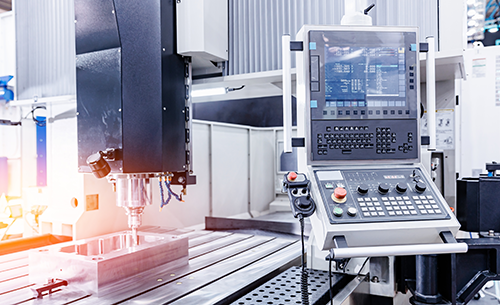
CNC machining, or Computer Numerical Control machining, has revolutionized manufacturing with its remarkable precision, ability to handle complex designs, and consistent quality output. Businesses across various industries rely on this technology to elevate production standards and remain competitive. Below, we explore some of the applications that benefit from CNC machining and embrace its advanced technology.
Aerospace Industry Applications
Manufacturing in the aerospace industry demands extreme precision and high-performance materials. From creating intricate turbine blades to strong engine components, CNC machining stands as an indispensable tool.
Its ability to machine complex geometries with minimal error ensures aircraft and spacecraft parts meet stringent safety and quality guidelines. Additionally, aerospace manufacturers benefit from CNC’s compatibility with advanced materials, such as titanium and carbon fiber composites, which reduce weight without compromising strength.
Automotive Industry Applications
The automotive industry has been a long-time beneficiary of CNC machining, leveraging its efficiency in producing components like engine blocks, gearboxes, and cylinder heads. What sets CNC machining apart for auto manufacturers is its ability to deliver rapid prototyping.
By allowing designers to test and tweak parts before mass production, CNC machines reduce costly errors. Furthermore, such technology supports customizable solutions, making it ideal for both mass-market vehicle parts and the rapidly growing electric vehicle (EV) segment where innovation is vital.
Healthcare Industry Applications
Few industries demand more precision than healthcare, where the smallest defect in a component could have life-altering consequences. CNC machines excel in producing critical medical devices like surgical tools, prosthetics, and implants.
For example, CNC machines enable the production of patient-specific implants, such as custom titanium bone plates, ensuring a precise fit and better outcome. Their compatibility with biocompatible materials like stainless steel and plastics also ensures compliance with healthcare standards. Additionally, CNC’s reliability eliminates the need for excessive manual intervention by streamlining production and minimizing costs.
Myths About CNC Machining You Should Stop Believing
Despite its widespread adoption, CNC machining is often subject to myths that can deter potential developers. For instance, some claim that CNC is only suitable for high-volume production. The truth is that many businesses also use it for low volumes and one-off prototypes because of its precision and cost-efficiency.
Another persistent CNC machine myth to stop believing is that they’re prohibitively expensive for small businesses. However, advances in accessible software and affordable machinery have made CNC technology attainable for companies of all sizes.
These misconceptions highlight why many organizations hesitate to adopt CNC machining. Understanding its full scope of applications can help decision-makers better appreciate its true value.
From aerospace to healthcare, CNC machining has proven itself to be a beneficial tool for applications that depend on innovation and accuracy. Its ability to adapt to complex requirements, work with a wide variety of materials, and scale production efficiently makes it a valuable manufacturing solution for businesses of any size.


Be the first to comment